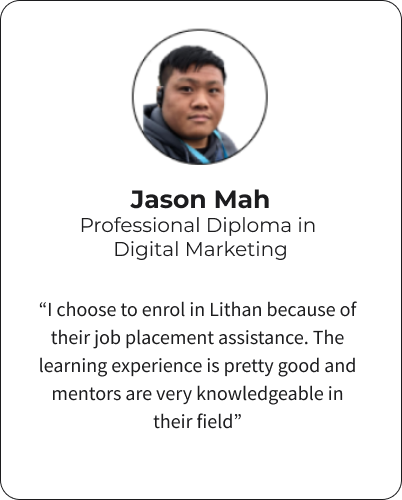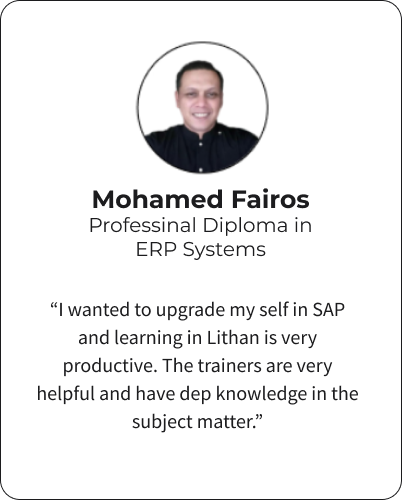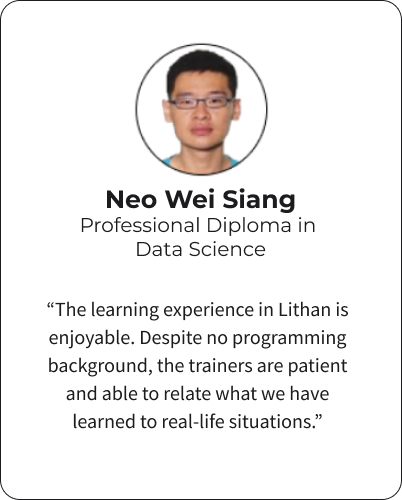Master in Computer Science – Bundle – Cloud Computing
- Homepage
- Master in Computer Science – B ...
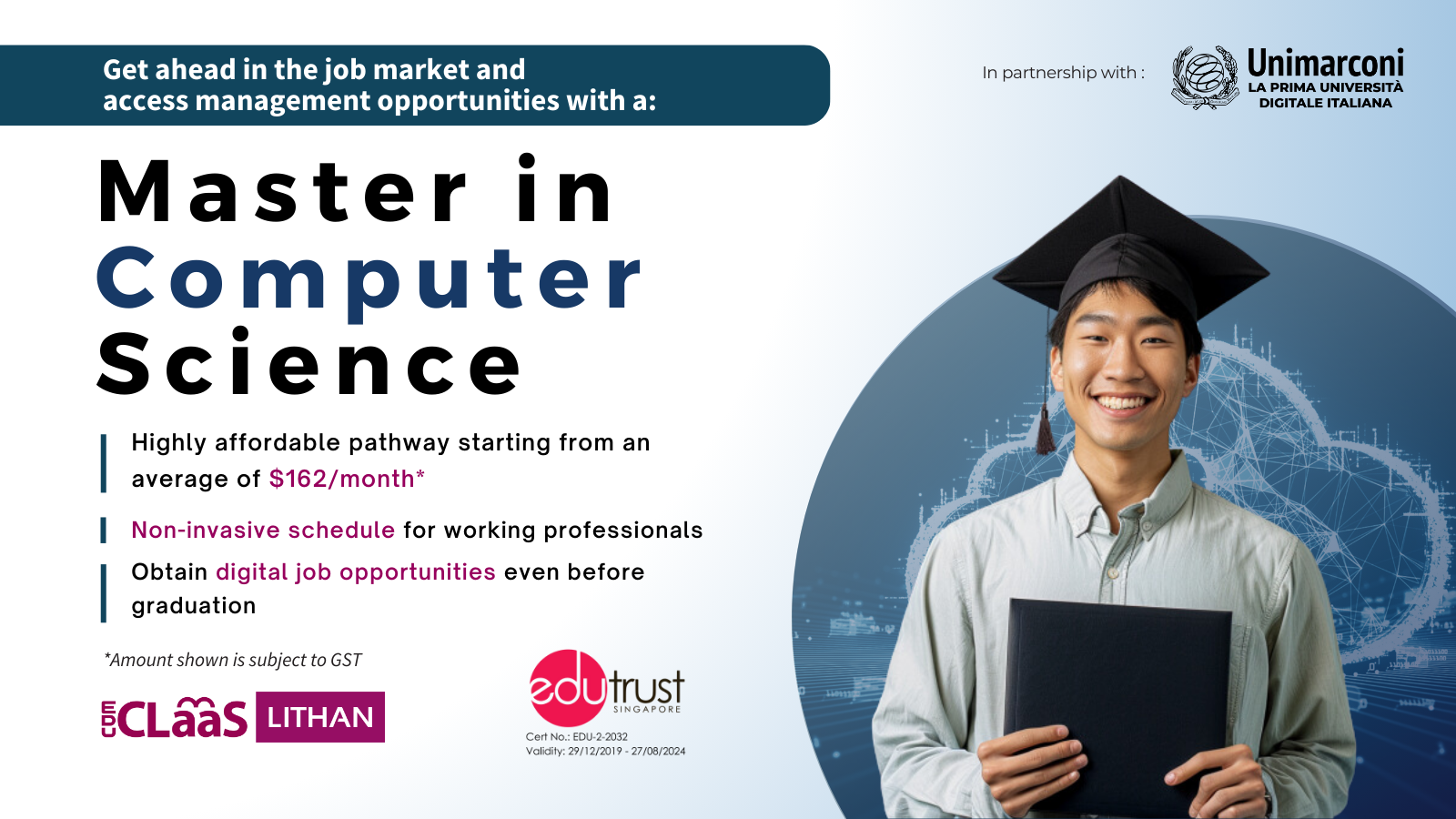
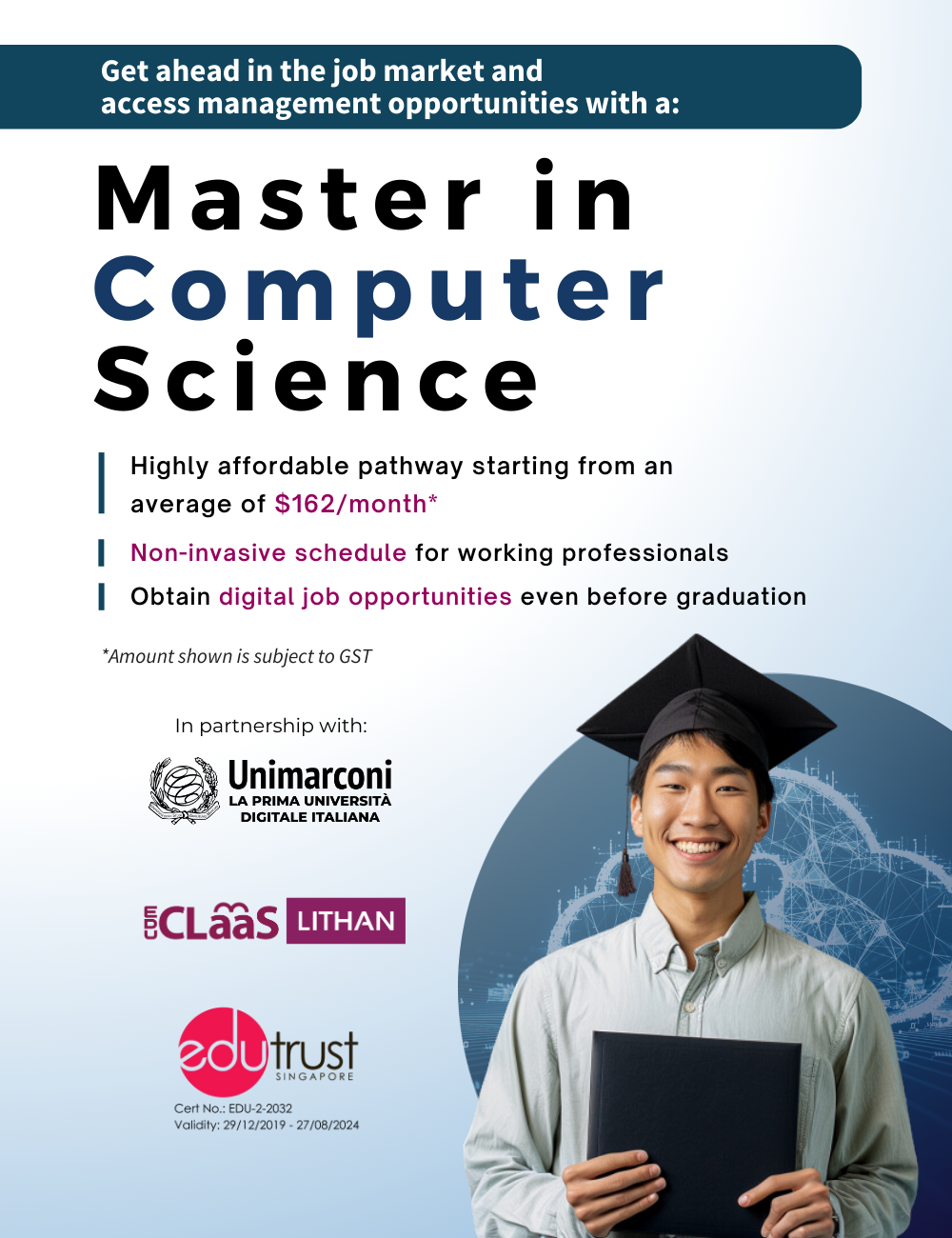
Why pursue a Master in Computer Science?

Academic qualifications still matter
A quick scan of popular job portals shows that the prerequisite for many PME roles is minimally a bachelor’s or master’s degree qualification. Master’s holders certainly have the edge.

Higher degree graduates are 100 times more rare
33% of locals are bachelor’s degree holders whereas only 0.3% are graduates of higher degrees*, resulting in master’s degree graduates having an academic advantage over most workplace peers and job applicants.

The IT & digital sector is booming post Covid
Singapore went through 5 years’ equivalent of digital transformation in the first 8 weeks of the pandemic¹, resulting in the need for an additional 1.2 million digital experts in the country by 2025². A Master’s in Computer Science will help you take advantage of this sky-high demand, especially with up to 92% of businesses in Southeast Asia countries continue to spend more on cloud computing³, driving it to be one of the most in-demand skills by 2025⁴.
² ⁴Source: Report from Amazon Web Services (AWS)
³IDC
Why pursue a Master in Computer Science?

Academic qualifications still matter
A quick scan of popular job portals shows that the prerequisite for many PME roles is minimally a bachelor’s or master’s degree qualification. Master’s holders certainly have the edge.

Higher degree graduates are 100 times more rare
33% of locals are bachelor’s degree holders whereas only 0.3% are graduates of higher degrees*, resulting in master’s degree graduates having an academic advantage over most workplace peers and job applicants.

The IT & digital sector is booming post Covid
Singapore went through 5 years’ equivalent of digital transformation in the first 8 weeks of the pandemic¹, resulting in the need for an additional 1.2 million digital experts in the country by 2025². A Master’s in Computer Science will help you take advantage of this sky-high demand, especially with up to 92% of businesses in Southeast Asia countries continue to spend more on cloud computing³, driving it to be one of the most in-demand skills by 2025⁴.
² ⁴Source: Report from Amazon Web Services (AWS)
³IDC
Why choose us

High Affordability

Non-invasive training schedule
Our blended learning delivery through a combination of self-paced learning, instructor-led flipped classes and personalised mentoring reduces in-class time commitment.

More than 10 years of Job Placement Success
Tap on our job placement assistance, backed by more than 10 years of proven track record, to gain cloud computing job opportunities even before you graduate!
Why choose us
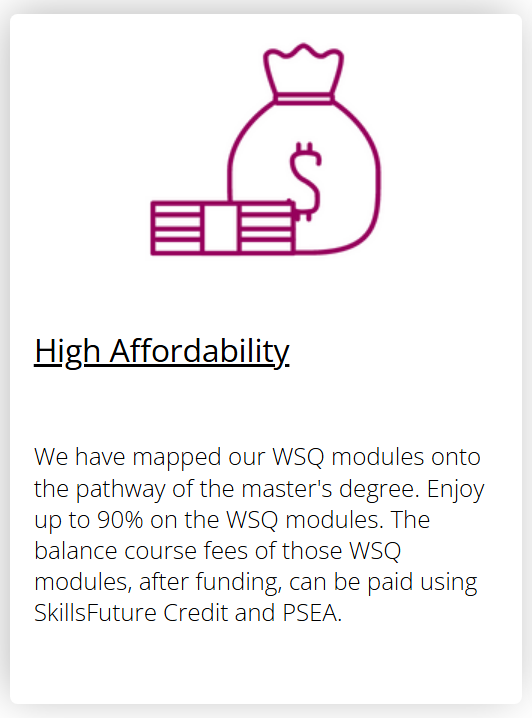
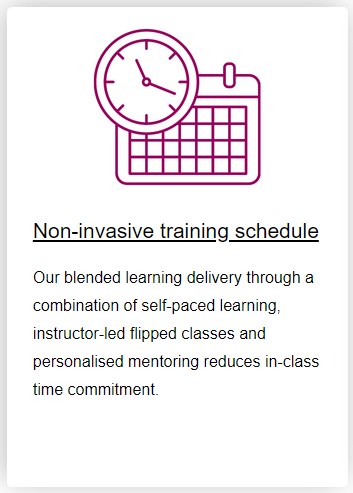
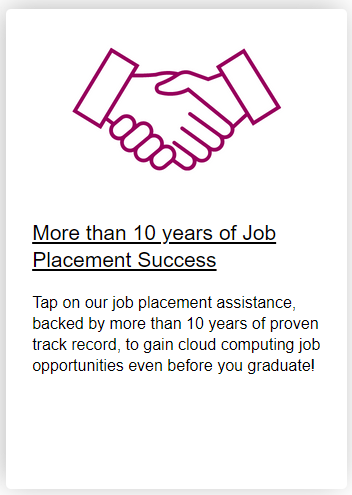
Course Details
Course Details

Prerequisite
AND
Minimum 21 years old with a bachelor’s degree in any field from a recognized university
OR
Matured candidate of 30 years and above with 8 years of relevant work experience.

Prerequisite
AND
Minimum 21 years old with a bachelor’s degree in any field from a recognized university
OR
Matured candidate of 30 years and above with 8 years of relevant work experience.
Modules
Finally, learners will implement GitHub Actions for CI/CD automation, elevating their skills in code integration and continuous delivery.
Course fee and funding breakdown
Guglielmo Marconi University
Today UniMarconi is chosen by over 80,000 students and considered among the best institutions for e-learning, for its overall learning level, for its relationship with the professional and labour market as well as the international benchmark for research and scientific cooperation agreements.
To find out more about the university, please visit https://www.unimarconi.com/ Or Download the brochure here
Guglielmo Marconi University
Today UniMarconi is chosen by over 80,000 students and considered among the best institutions for e-learning, for its overall learning level, for its relationship with the professional and labour market as well as the international benchmark for research and scientific cooperation agreements.
To find out more about the university, please visit https://www.unimarconi.com/ Or Download the brochure here
About Lithan
100 campuses across Asia
Accredited by the Singapore government as a CET Centre (Continuing Education and Training)
Edutrust certified by Committee for Private Education (CPE)
Internationally accredited by Pearson UK and Scottish Qualifications Authority (SQA)
About Lithan
100 campuses across Asia
Accredited by the Singapore government as a CET Centre (Continuing Education and Training)
Edutrust certified by Committee for Private Education (CPE)
Internationally accredited by Pearson UK and Scottish Qualifications Authority (SQA)
Awards and Accreditations
Microsoft Global Learning Partner of the Year Award (Finalist)
Pearson’s BTEC College of the Year 2019 Award for Asia
Dun&bradstreet’s Business Eminence Award 2020
Flame Innovation Award 2019 by SkillsFuture Singapore
APAC CIO Outlook’s Top 10 Provider of Education Tech Solution
Student Testimonials






